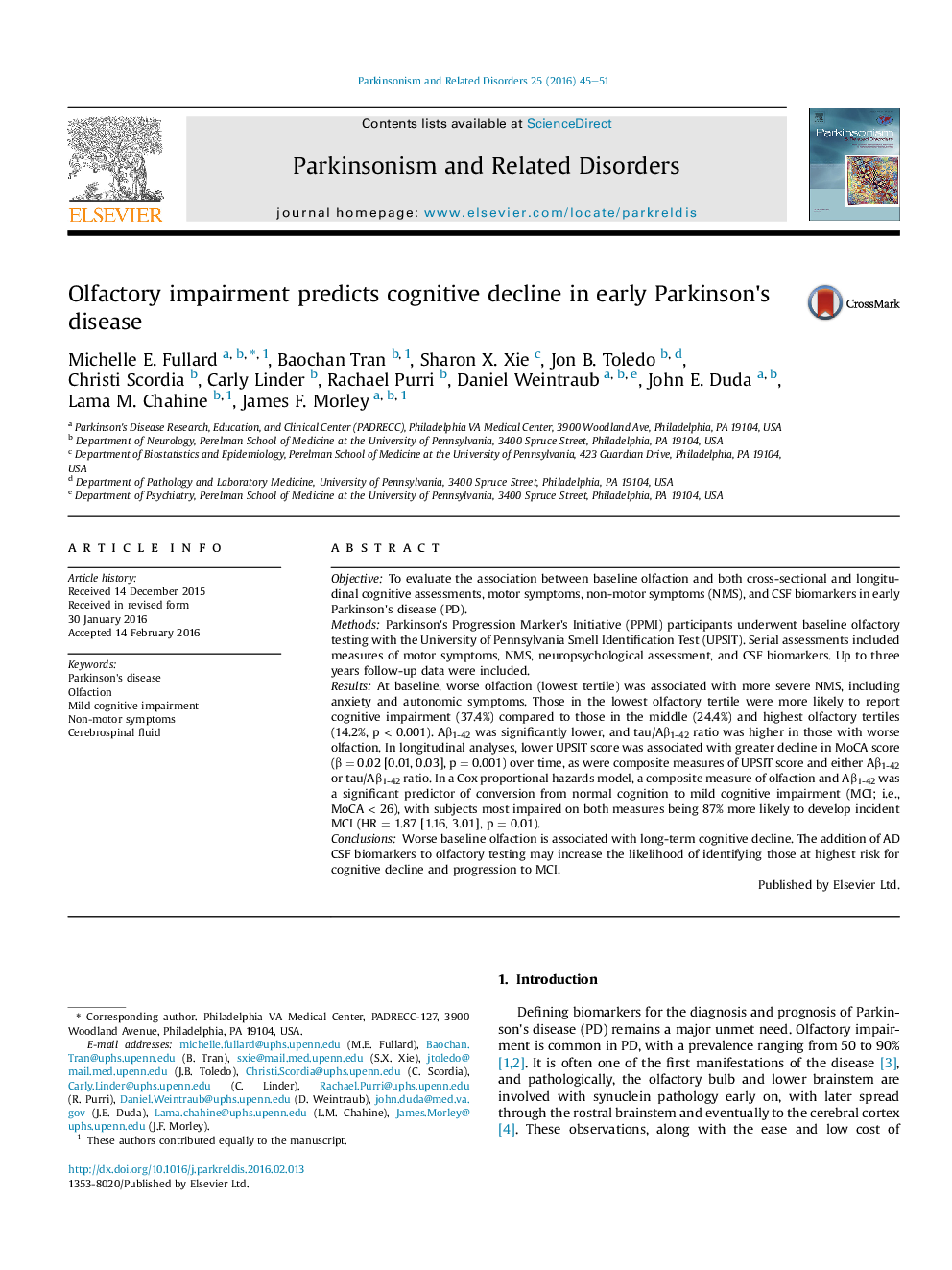| Article ID | Journal | Published Year | Pages | File Type |
|---|---|---|---|---|
| 1920242 | Parkinsonism & Related Disorders | 2016 | 7 Pages |
•Olfactory impairment is common in Parkinson's disease.•Lower UPSIT score was associated with more severe non-motor symptoms.•Worse olfaction was associated with a greater decline in MoCA score.•Addition of AD CSF biomarkers to olfaction may improve ability to predict MCI.
ObjectiveTo evaluate the association between baseline olfaction and both cross-sectional and longitudinal cognitive assessments, motor symptoms, non-motor symptoms (NMS), and CSF biomarkers in early Parkinson's disease (PD).MethodsParkinson's Progression Marker's Initiative (PPMI) participants underwent baseline olfactory testing with the University of Pennsylvania Smell Identification Test (UPSIT). Serial assessments included measures of motor symptoms, NMS, neuropsychological assessment, and CSF biomarkers. Up to three years follow-up data were included.ResultsAt baseline, worse olfaction (lowest tertile) was associated with more severe NMS, including anxiety and autonomic symptoms. Those in the lowest olfactory tertile were more likely to report cognitive impairment (37.4%) compared to those in the middle (24.4%) and highest olfactory tertiles (14.2%, p < 0.001). Aβ1-42 was significantly lower, and tau/Aβ1-42 ratio was higher in those with worse olfaction. In longitudinal analyses, lower UPSIT score was associated with greater decline in MoCA score (β = 0.02 [0.01, 0.03], p = 0.001) over time, as were composite measures of UPSIT score and either Aβ1-42 or tau/Aβ1-42 ratio. In a Cox proportional hazards model, a composite measure of olfaction and Aβ1-42 was a significant predictor of conversion from normal cognition to mild cognitive impairment (MCI; i.e., MoCA < 26), with subjects most impaired on both measures being 87% more likely to develop incident MCI (HR = 1.87 [1.16, 3.01], p = 0.01).ConclusionsWorse baseline olfaction is associated with long-term cognitive decline. The addition of AD CSF biomarkers to olfactory testing may increase the likelihood of identifying those at highest risk for cognitive decline and progression to MCI.
